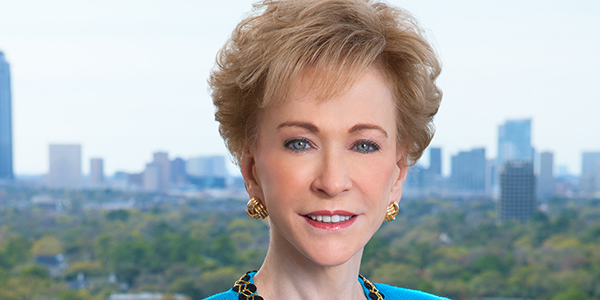
PITT PUBLIC HEALTH MAGAZINE — Diane Peterson (HPM ’75) was one year into her master’s degree in the Graduate School of Public Health’s human genetics program when she realized she needed to make a change.
Peterson had arrived at Pitt after completing her undergraduate degree in science at Chatham University and was working full time as a lab assistant for the chair of the biology department. She recalls that when it came to running a lab, “I preferred managing NIH grant budgets and people to experimenting on rabbits.”
Peterson wanted to transfer into the Master of Health Administration program. The school did not officially offer a part-time version of the degree at that time, but made an exception. While she was thrilled by her new educational path, she had to scramble to complete her courses while still working full time. “I couldn’t stay around to have coffee in the lounge,” says Peterson. “I was always running in and out.”
While the schedule was hectic, she fondly remembers the mentorship of “wonderful, strong teachers” like Tom Terrell and C.C. Li. Looking back, Peterson says her unconventional academic journey ended up being the perfect foundation for a career that has taken her all over the world and to the height of her profession.
“I’m very proud to be a Pitt grad,” she says. “Even with the circuitous approach I took, I think the program did a marvelous job of providing me a well-rounded education.” Now retired after more than 40 years of working in executive leadership, Peterson took time to reflect on her career and share some wisdom.
After graduating in 1975, Peterson held senior roles at a variety of health care institutions, including Sewickley Valley Hospital north of Pittsburgh, and Memorial Hermann Healthcare System and St. Luke’s Episcopal Hospital, both in Houston, Texas. In 1987, she struck out on her own, forming D. Peterson & Associates, and quickly established herself as one of the nation’s leading consultants for hospitals.
Across her many decades of work, Peterson has seen the industry undergo massive changes, both culturally and technologically. In the 1970s, she was one of only a handful of women in the health administration program. Today, women earn the majority of graduate degrees in the discipline, which Peterson says is one of the most positive trends she’s witnessed in her career. And of course, the rapid pace of innovation has made health care a much more complex and costly endeavor, requiring executive consultants like her to stay educated on the latest therapies and technologies, as well as management trends in the field.
However, she says there are some skills that have stood the test of time, including leadership and a focus on the patient. “The one thing that doesn’t change is that ethical and inspirational leadership matters,” she says.
Peterson’s consulting company pioneered a unique method of collecting data. “We were hired to have mystery patients admitted to client hospitals. They would go through the emergency department, be admitted, undergo diagnostic testing, eat the food, ring the call bell, and report on the service experience,” she says. “That was a really effective technique. We then would use the report to improve processes and train employees.” Her associates even volunteered for undercover colonoscopies: “a pretty courageous bunch.”
In addition to building her own career, Peterson also was a devoted member of the American College of Healthcare Executives (ACHE), the premier industry group advancing health care management. A member of the council of regents and governing board for many years as well as chair from 2001–02, she was awarded the ACHE Gold Medal Award, the organization’s highest honor. She similarly has garnered extensive recognition at Pitt, including the Alumni Association’s Distinguished Alumni Fellow Award, the school’s Distinguished Alumni Award, and the University’s Legacy Laureate award for outstanding professional and personal achievements.
“Throughout my tenure, I’ve been fortunate to count on Diane’s remarkable experience, her wise advice, and her strategic vision,” says Dean Donald S. Burke. Peterson continues her service on the Pitt Public Health Board of Visitors and recently hosted an alumni gathering at her home in Houston.
One of Peterson’s most cherished pastimes is traveling the world with her husband, Larry Mathis, retired CEO of Houston Methodist Healthcare System. She has visited 140 of the 195 countries in the world and helped to create a number of international branches of ACHE, including in Bermuda and Istanbul, Turkey.
Though she technically has been retired since 2015, Peterson continues to actively follow developments in the health care industry and to attend professional meetings. She says her challenge in retiring was “I had to move from leadership of others to leadership of self.”
Not least of all, Peterson says she is looking forward to continuing her long-standing role as booster, donor, and all-around active alumnus for Pitt Public Health. “Pitt provided me the essential credential for my career,” she says. “To continue to be involved with the school is a very meaningful honor.”
2/20/2020